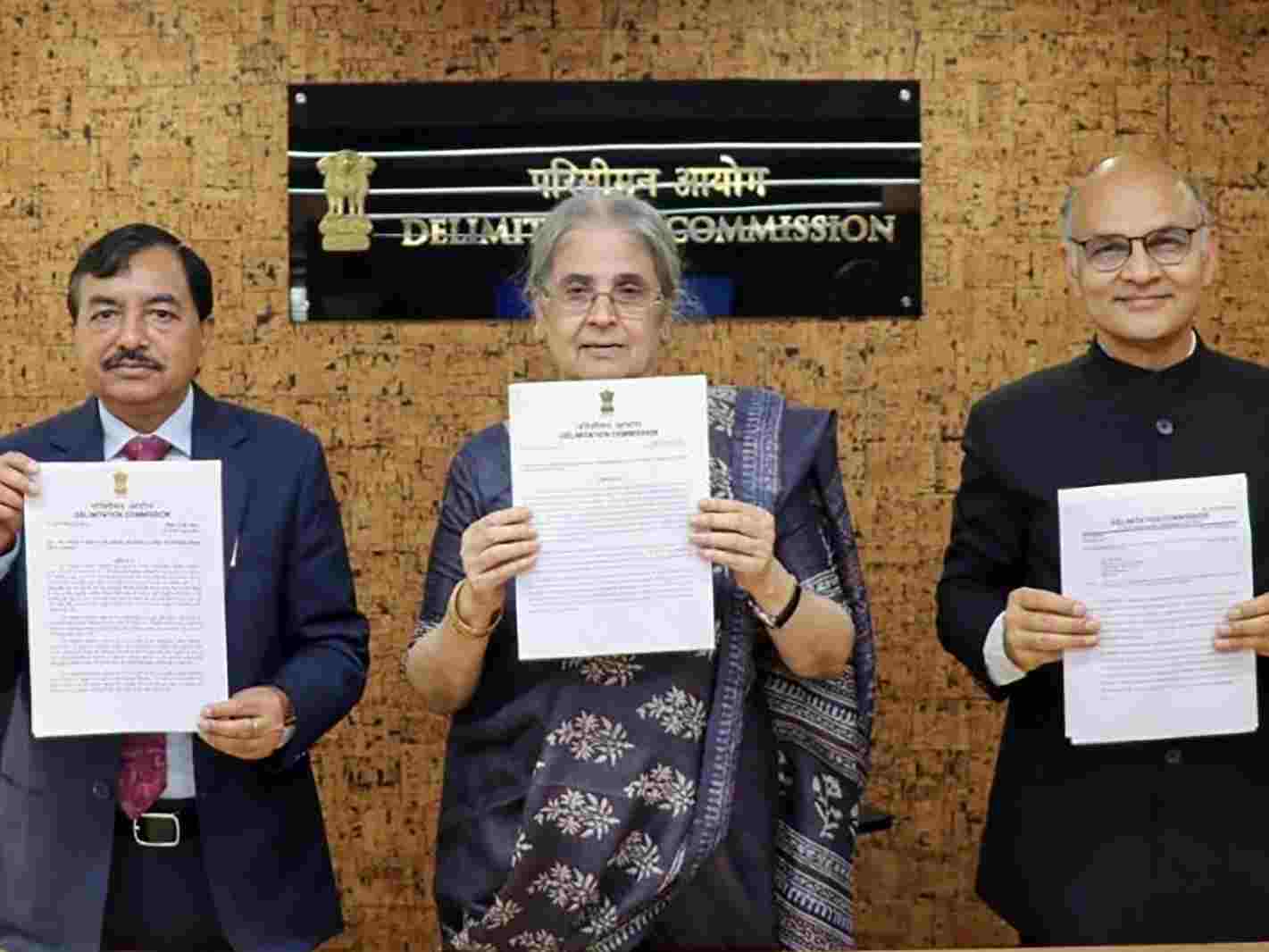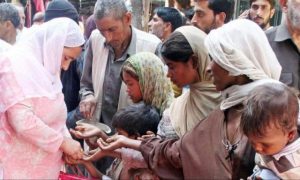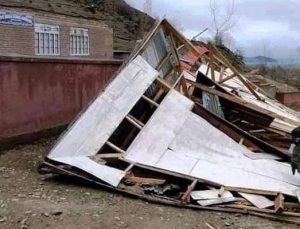
Delimitation gives BJP hope in Jammu but Kashmir still out of its grasp
The Delimitation Commission has notified all the new assembly and five parliamentary constituencies of Jammu and Kashmir, recommending for the first time the reservation of seats in the J&K assembly for Kashmiri migrants, including those displaced from Pakistan-occupied JK. The commission, headed by Supreme Court Justice (retd) Ranjana Prakash Desai, has increased the number of assembly seats in J&K from 83 to 90, with the BJP’s stronghold of Jammu walking away with a lion’s share of six new seats, even though the region has a smaller population (53 lakh) as compared to Kashmir (68 lakh).
For the first time, the commission has notified that nine assembly seats in the J&K assembly will be reserved for Scheduled Tribes, a move which is touted to empower J&K’s downtrodden communities of Gujjars and Bakerwals who lead a nomadic life. Three SC reserved seats in Kashmir include Gurez, Kangan, and Kokernag while six SC reserved seats in Jammu are Gulabgarh, Rajouri, Budhal, Surankote, Mendhar and Thanamandi.
In its second draft report, the commission, which was set up in March 2020 to redraw the electoral map of Jammu and Kashmir, had completely erased some old assembly constituencies. However, some of these changes have been undone in the final notification which was signed by the commission’s members and issued in the Gazette of India on Thursday. This includes the restoration of the Suchetgarh constituency where the BJP’s local unit had resigned en masse to protest the erasure of the assembly segment in the Jammu region which has sent several prominent lawmakers to the legislative assembly, at least one of whom has gone on to become a minister in J&K. Mainstream parties in Kashmir have alleged that the new electoral cartography has skewed the population factor to favour the Jammu region where each constituency will have 1.2 lakh voters while in Kashmir, an average constituency will be made of 1.4 lakh voters.
Narrative
As the Delimitation Commission has completed its controversial exercise, Jammu and Kashmir has moved a step closer towards getting a democratically elected government, explains Jehangir Ali the Prime Minister Narendra Modi, Home Minister Amit Shah and other senior central ministers as well as J&K BJP leaders have in the past said that the schedule of Jammu and Kashmir’s much-delayed Assembly elections would be announced only after the Delimitation Commission submits its final report.
With the commission, which got two extensions in two years, completing its controversial exercise, the Union Territory, which remains under the central rule since the coalition government of the Peoples Democratic Party and the BJP fell apart in 2018, has moved a step closer towards getting a democratically elected government.
Speaking with News9, senior CPI (M) leader M Y Tarigami said that the Union government “must take the next step for the restoration of democratic processes” in Jammu and Kashmir.
“The ball is in their court. They (Centre) have to take the call,” said Tarigami, who is also the spokesperson of the Gupkar alliance, an amalgam of five Kashmir-based parties who are fighting against the abrogation of Article 370.
After the abrogation of Article 370, these political parties, including the National Conference and the Peoples Democratic Party, have been facing the heat in Jammu and Kashmir.
Their leaders, such as Dr Farooq Abdullah and Mehbooba Mufti, have been questioned by central investigation agencies in alleged corruption cases, even as the Union government took a slew of measures in tandem to strengthen Panchayat Raj institutions.
The BJP is hoping to diminish the electoral value of Kashmir’s old political guard by raising the spectacle of corruption and dynasty politics while encouraging and grooming alternate political leadership through Panchayat Raj institutions. With the local administration of J&K under its control, the BJP is also allegedly aiding its prospective allies to covertly expand their influence in Kashmir.
By defying the parameter of population and notifying six out of seven new seats in the Jammu region, political parties in Kashmir have alleged that the commission was “acting as an extension of the BJP.”
Once the election dates are announced by the Election Commission, the Gupkar alliance, which has been seeking restoration of J&K’s special status and the release of Kashmir’s political prisoners among other measures from the Union government, is expected to sit in a huddle and chalk out the future course of action.
Last year, the alliance, which was set up in 2019, suffered a setback with the exit of Sajad Lone’s Peoples Conference.
According to insiders, the alliance has been marred by a trust deficit following Sajad’s exit.
That the alliance is undergoing a serious churning now was reflected in the remarks of former J&K Chief Minister Omar Abdullah who suggested that the constituent parties could fight the assembly elections under one banner.
The elections are likely to be followed by the restoration of the statehood of J&K which was bifurcated into J&K and Ladakh and downgraded into two Union Territories.

